TOGETHERNESS
WITH cloe lacasse
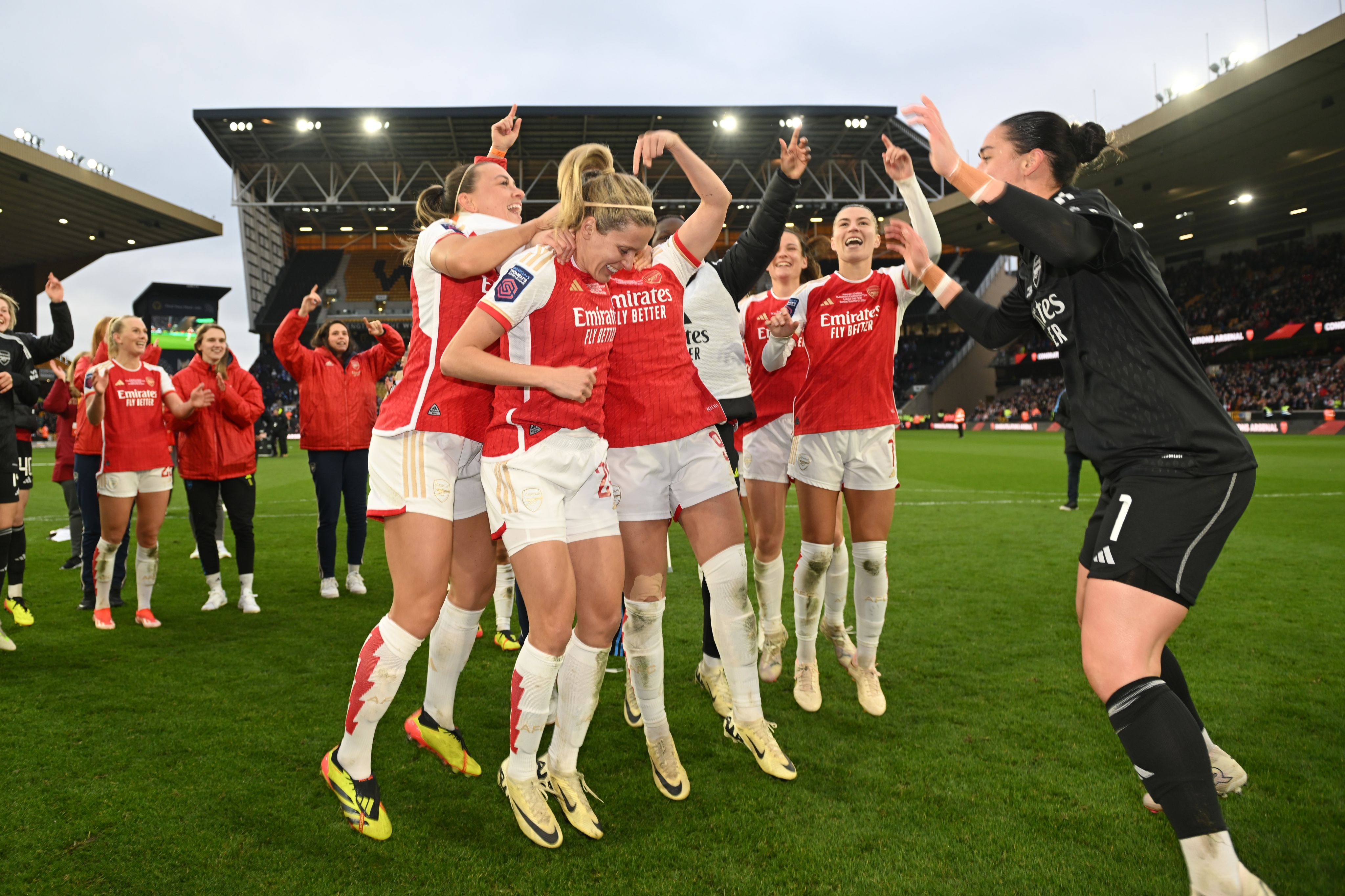
What do you think is the most important ingredient of a team?
I think, for me, it's about creating an environment that's extremely, I'm going to say genuine, where people know that they can really be themselves and excel, because in that way, you can take criticism, but you can also give it out as well. And you can feel like there's just that sense of trust and connection within the group, and I think we have that here.
What does team spirit mean to you?
I think for me, it's about just being able to push the person next to you as much as you can, and you know they’ll be receiving that in a sincere way, and also in a constructive way. We’re all competitors here and we all chose Arsenal because we want to compete with the best and we want to be able to improve ourselves. For me, that's team spirit.
If you think back to your childhood, what was the very first team that you ever played for?
So, in Canada, we have little recreational leagues, and most kids will play in them. It's called The Timbits. A Timbit is like a small donut - it’s because Tim Hortons, the massive coffee chain in Canada, sells Timbits, which is a small donut, so I was a Timbit. To be fair, all the teams are called The Timbits, but you get a different colour.
You had to be at least four years old to sign up, but I had an older brother and I guess I just annoyed my dad so much that he signed me up illegally at three years old. They just lied about my age! I was a Timbit until I was probably about eight or nine and then I started going towards the competitive ranks and joining club teams.
Are you still in touch with anyone from that team?
From The Timbits? No. But when I started going towards competitive club football, yes.
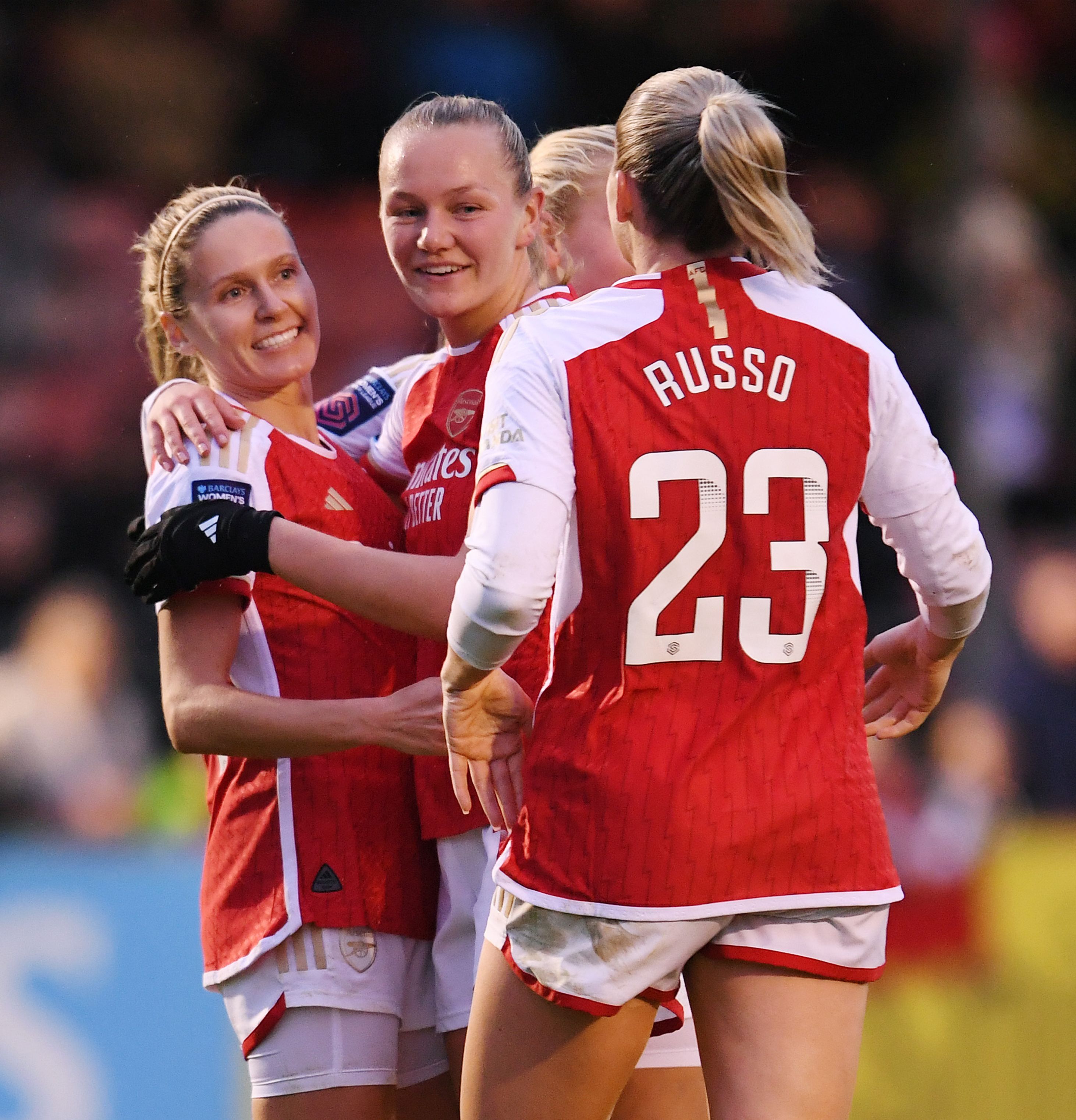
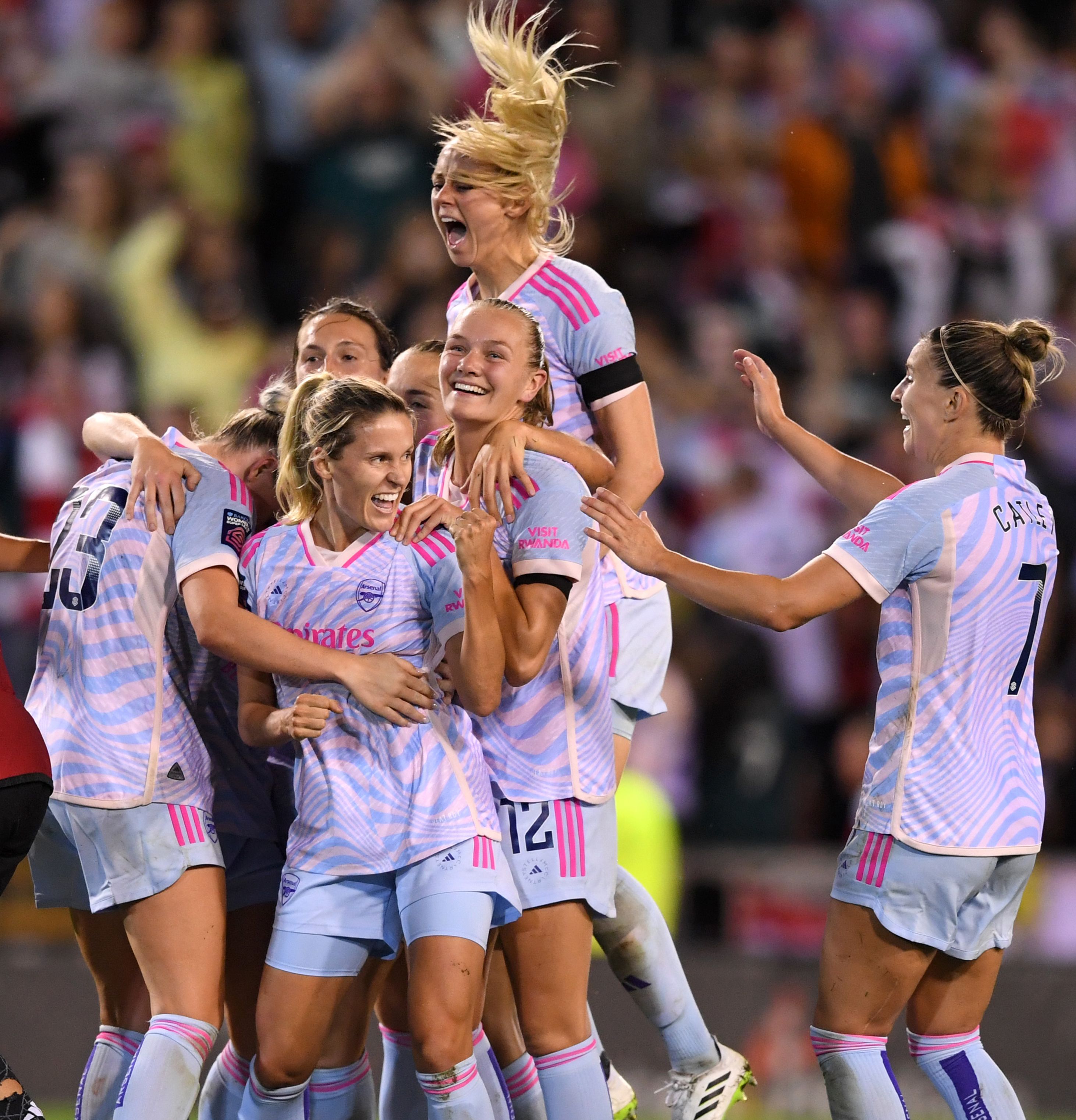
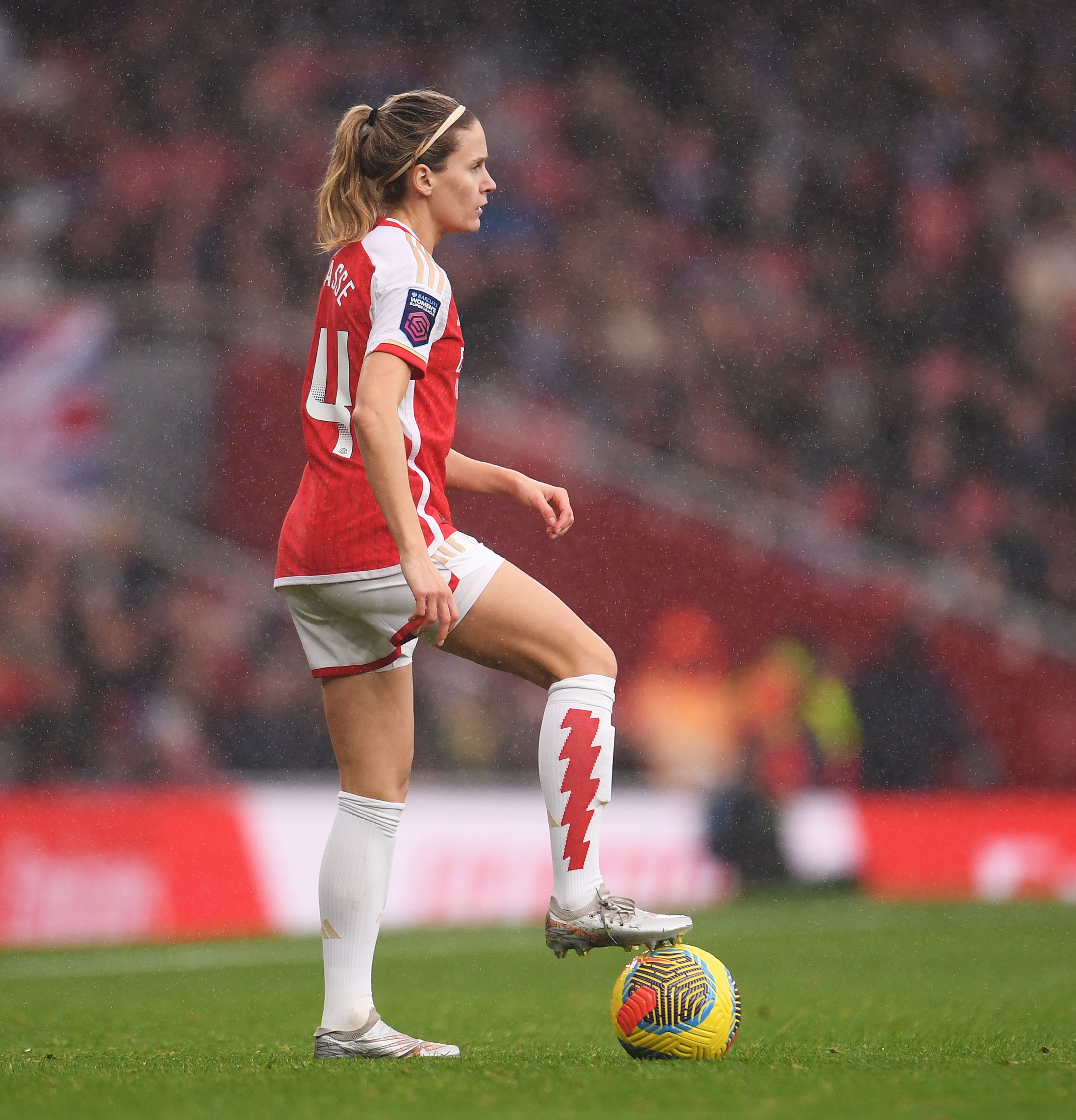
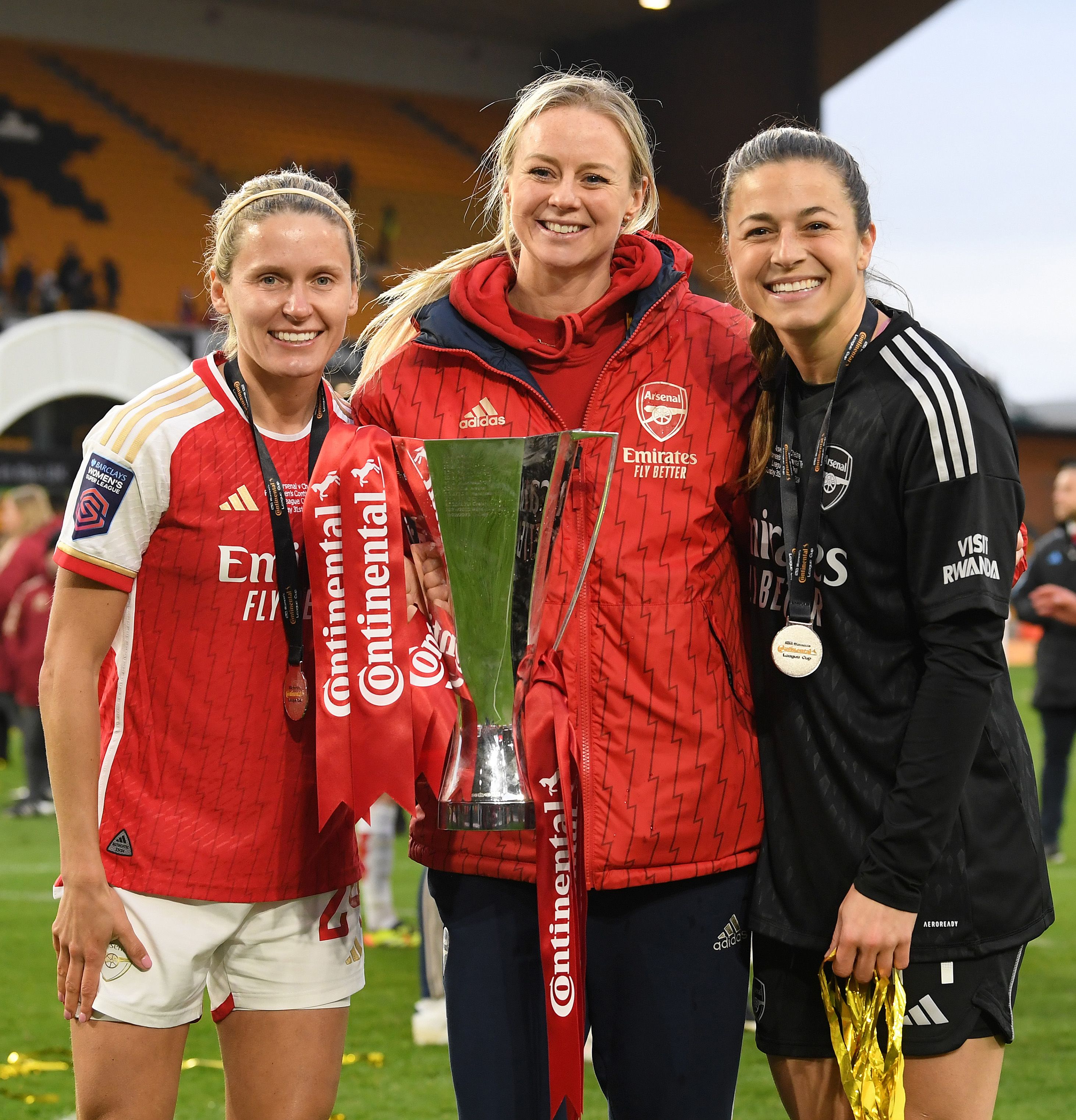
What kind of memories have you got of playing grassroots football?
I played on an older girls’ team. I think the earliest you could play on the competitive level was under-13 and I was about nine then. Honestly, I think my biggest memory was that they gave me this club bag that was just massive, because I was the smallest. Like, I couldn't even carry it over my shoulder, so I would just drag it around everywhere. That's probably my earliest memory on the competitive side.
Once I got to about thirteen or fourteen years old, we were always playing boys’ teams because there was only one girls’ team in my area. So, I think once we were able to beat one of the younger club teams on the boys’ side, I think that's when I was starting to realise like, ‘Okay, I might have something here with football.’
Who are you closest to in the team currently and across the years, who have you bonded with?
Sabrina is definitely my closest. We have a pretty special connection because we've known each other since we were about fourteen years old. And it's also been really nice to get to know Amanda. We kind of have a little dinner club going on, so we've created a nice little connection between the three of us.
It's actually Amanda's turn next, so we’re waiting. I made a dish, it’s called Bacalhau, which is a Portuguese dish. It's like cod, fish base with potatoes, eggs and olives kind of mashed up. There's a secret ingredient in there too, but I can't tell you.
I think in sport, it's difficult sometimes to separate the football player and say, the real person. But it's nice to have those types of connections and friendships where we're able to actually discuss things that aren't football-related. Because obviously, our lives are absolutely overwhelmed with football, so it is nice to be able to get to learn more about where they're from and who they really are. That’s why I really like our dinner club. And then, of course, if we need help in the football world, we know that we have those relationships that allow us to lean on these specific individuals.
"Our lives are overwhelmed with football, so it is nice to be able to get to learn about who they really are."
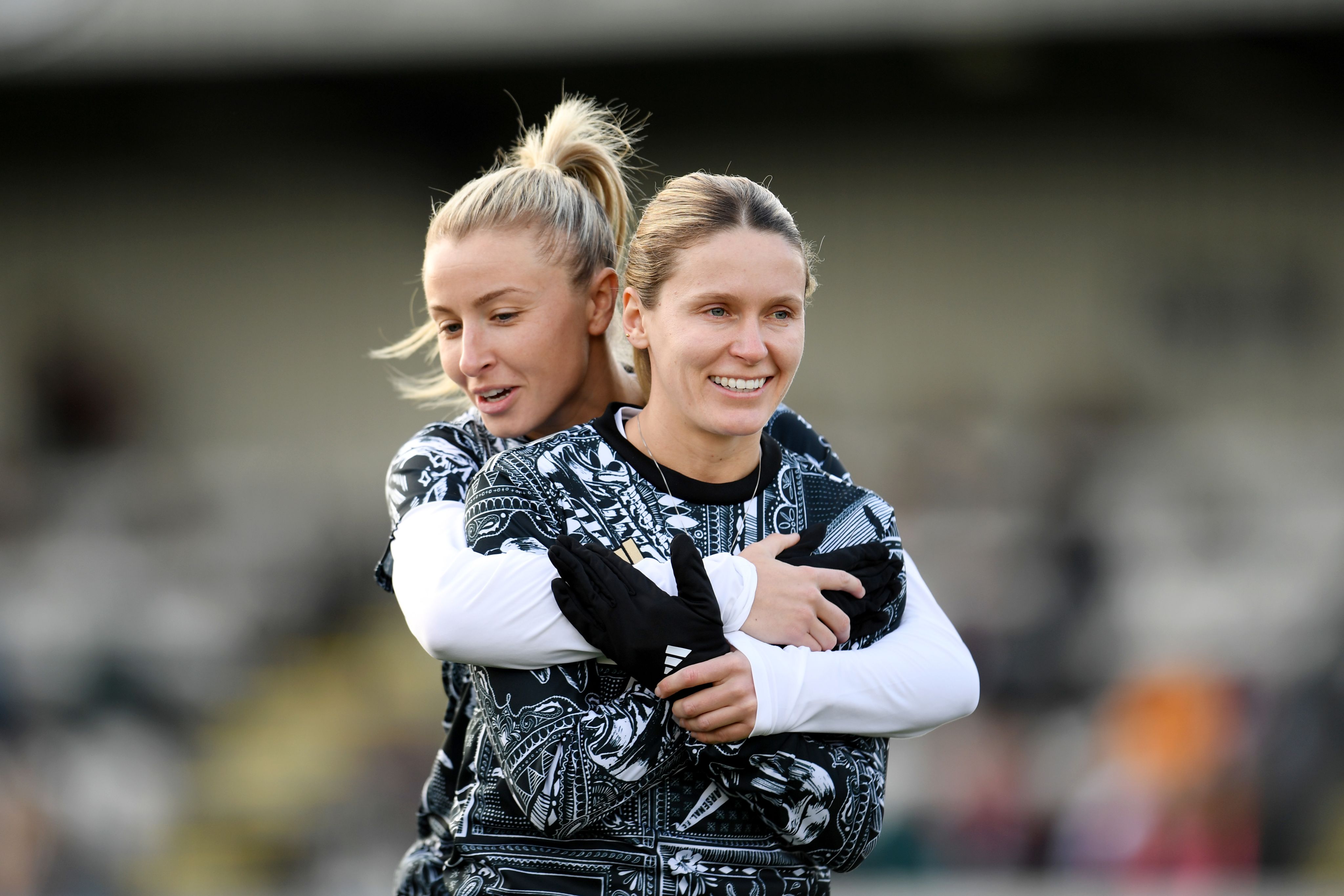
Being a footballer is such a unique job in the way that it allows you to travel around the world and meet so many different people. What would you say are some of the language and cultural learnings that you've picked up from teammates over the years?
That's a good question, actually. I think culturally, what I've personally enjoyed is picking up languages. Since I've played in Iceland and Portugal, I've been able to pick up both those languages quite well. And I think, when you actually try to gain a language from a foreign country, the people in the community kind of take you in even more, and they just embrace you more because you're putting an effort into getting to know their history.
I think on this team, it's kind of special because we have so many different backgrounds and everyone kind of just blends in so well. So, it's nice to be able to just kind of become a blender, I'll say!
How important is diversity in creating a successful team?
I think that that can actually go very well or very poorly, depending on how the team approaches it. I think here at Arsenal, as far as football, it's been an excellent outcome just because everyone brings those unique attributes in the way that they play. Like if you look at Codi, for example, she'll be different to Lotte, and that has to do with the history, her coaches and how she grew up playing football and where she grew up. And I think that's why we all want to be at a club like Arsenal because you get to see so many different walks of life on the pitch.
Here we’ve been able to successfully bring all of those different attributes together, which is, once again, the blender effect! It's definitely fun to see and to learn how people grew up and what their experiences in their younger days were like.
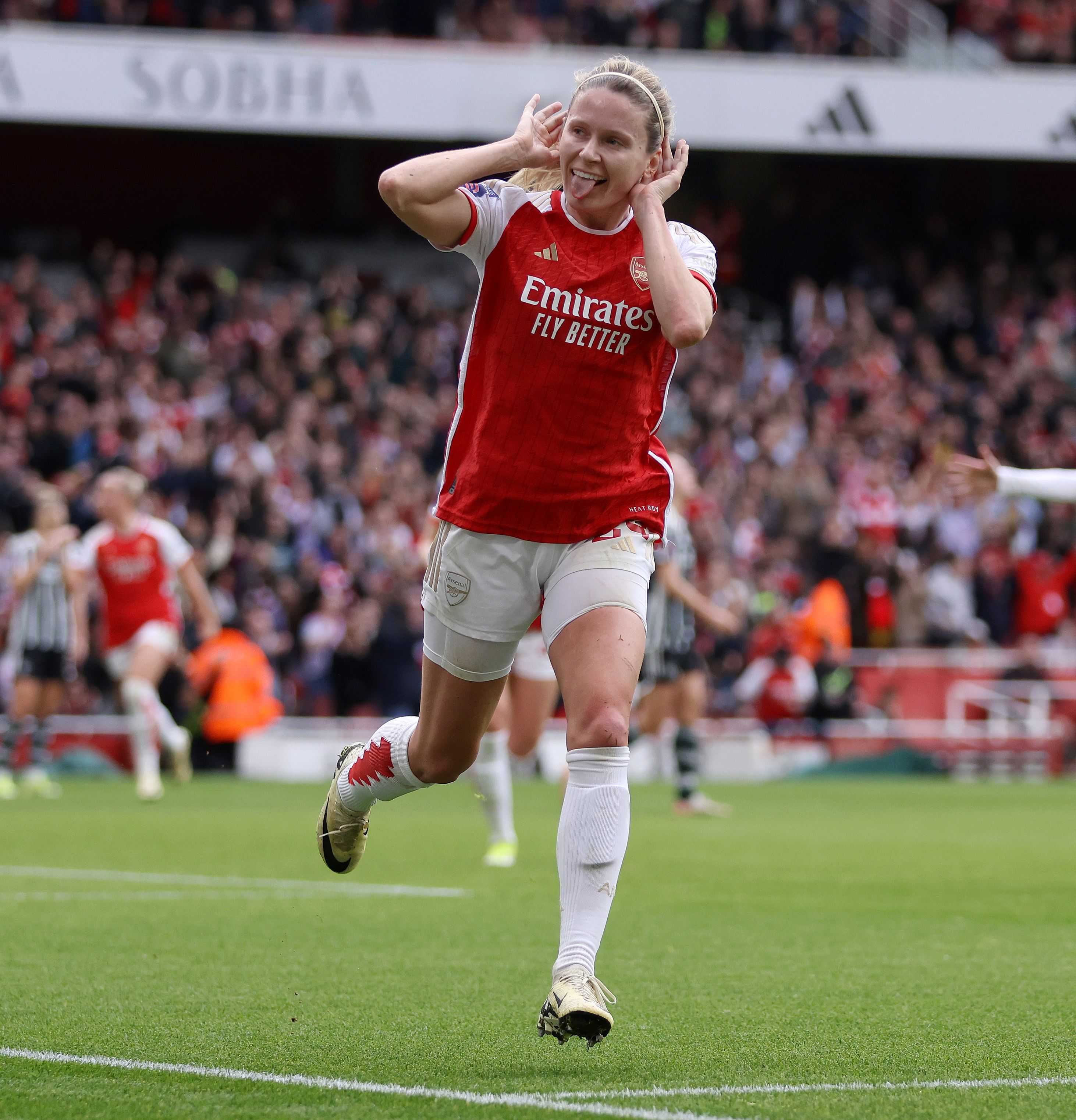
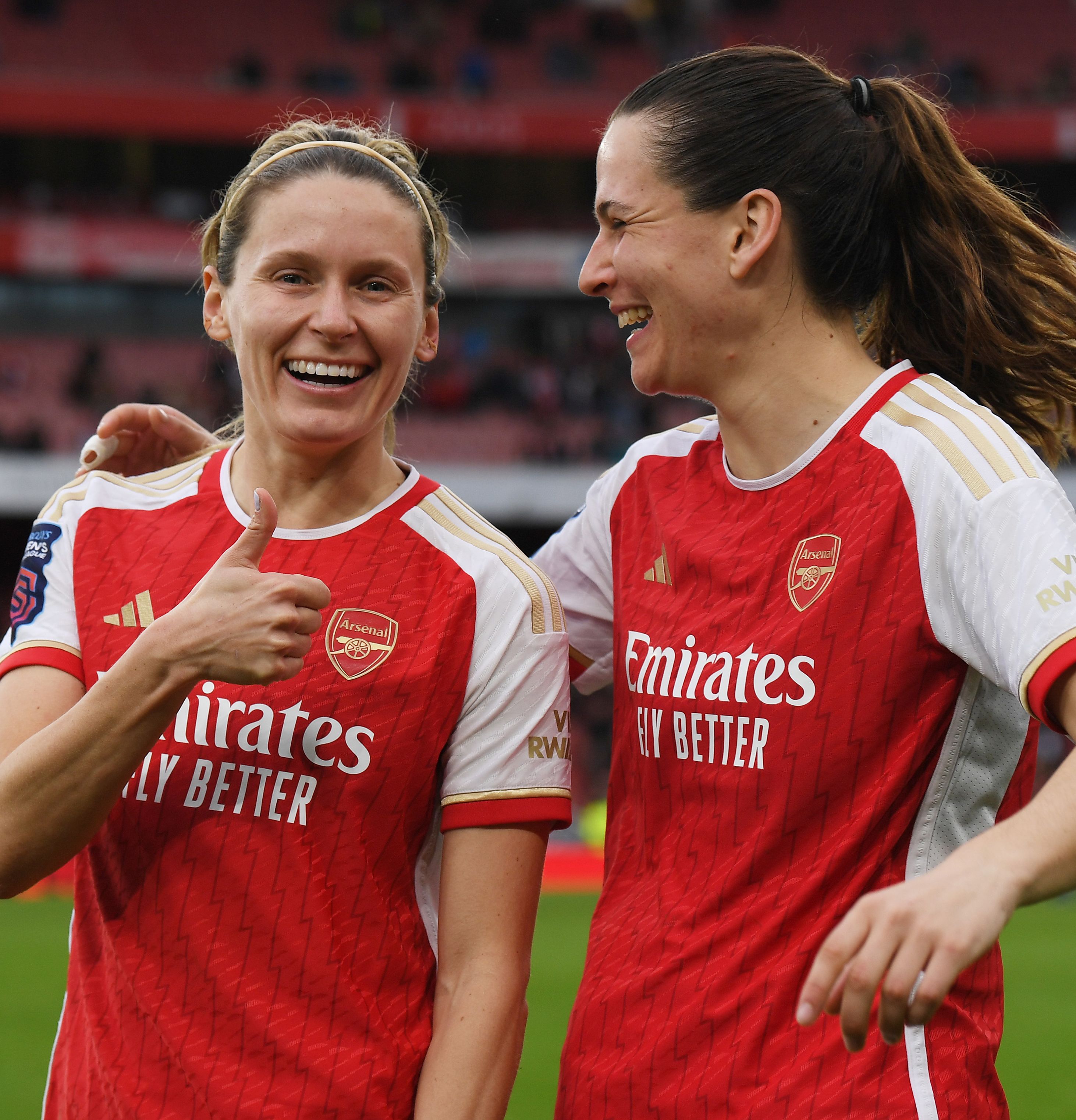
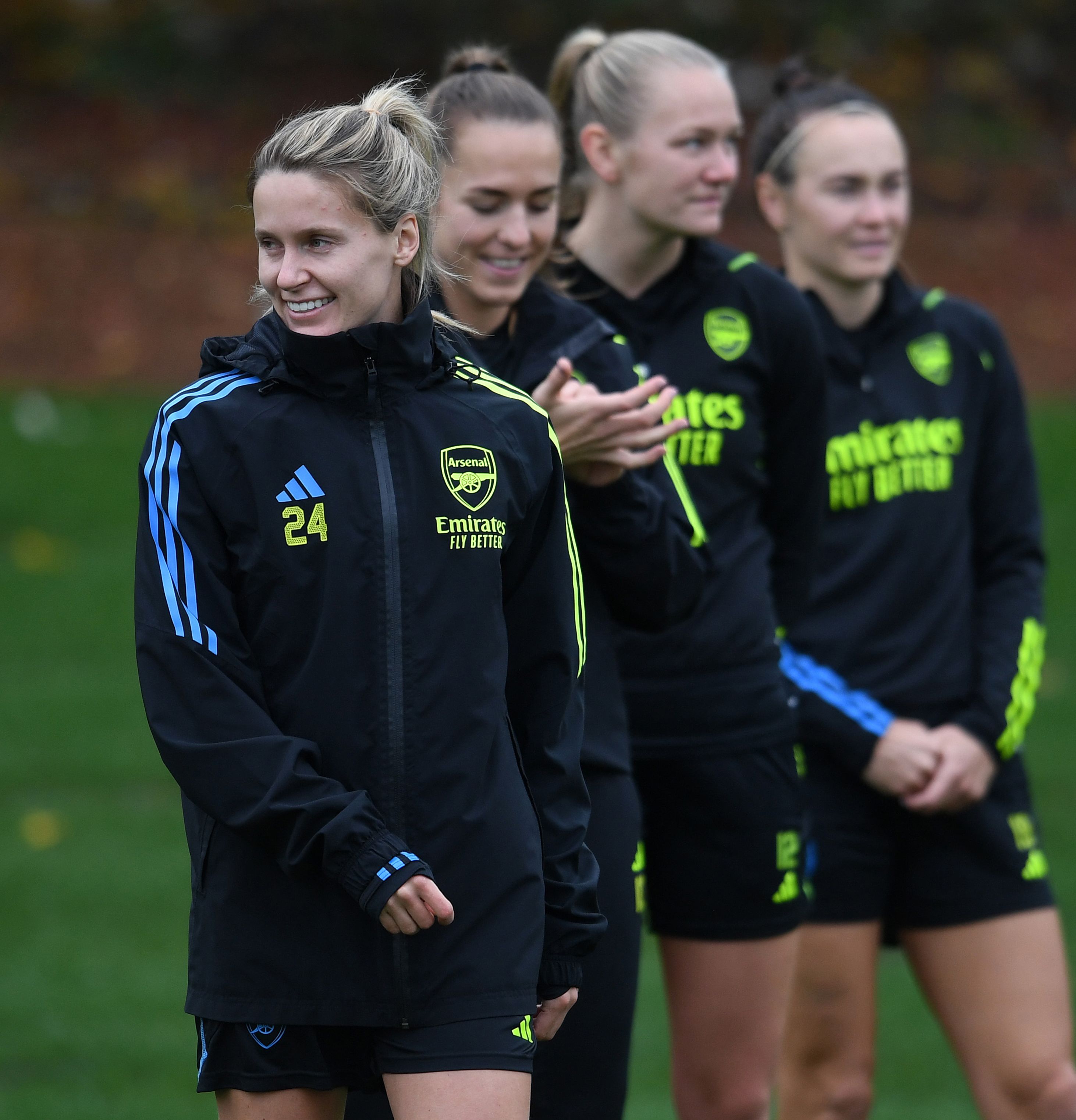
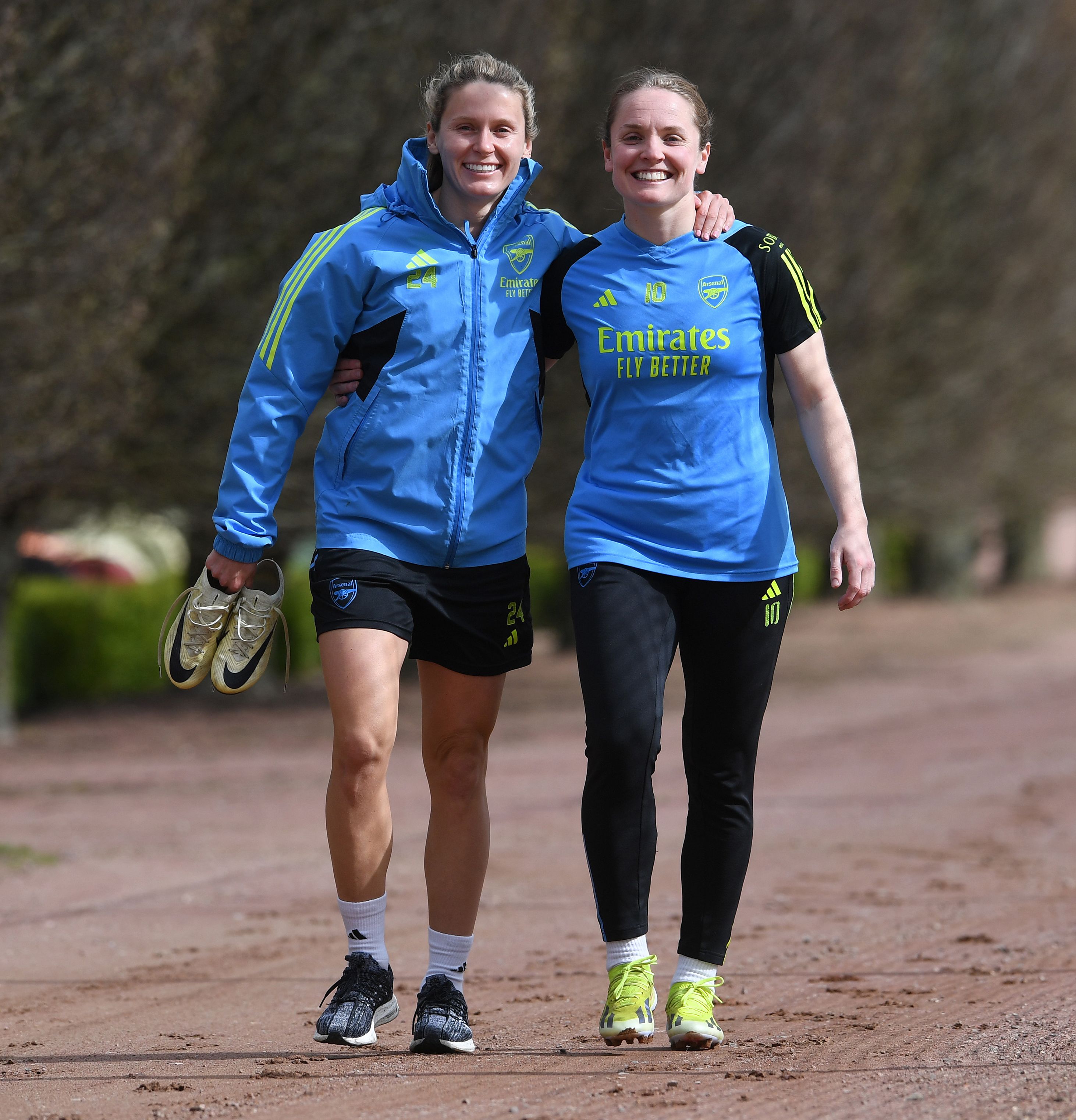
Who is your personal team and how would you define who they are and the kind of people they are?
Definitely my family. It's definitely a little bit different than most European football players just because my family barely knows what an offside is, to this day. My entire family are still working on that. I come from a really small town and football is absolutely not the priority there.
It's a massive hockey town, which has been, honestly, probably a blessing in disguise, just because it allows me to completely disconnect when I don't want to talk football with my family. And when they do speak about football, it's always in a quite positive and almost very naïve kind of way. I can always count on them just because I know they're going to turn the page and it's not going to be a complete analysis.
Can you think of a time of in recent years where maybe you've been in a difficult moment on the pitch and your teammates have been there to lift you up and help you?
I remember a couple of years ago, it was during a tactical meeting and it was all in Portuguese, there was no English. And it was one of my first years out there and I was just completely overwhelmed. I was like, ‘Wow, what have I done to myself? I don't understand a damn thing.’ And I was just getting hit with so much information in a foreign country. I remember afterwards, I just went to my room and I think a couple of teammates realised. They could just see it in my face that I was completely overwhelmed and they were able to talk me through it and they helped me even though their first language wasn't English.
They were able to pull me in the right direction and explain some of the details. They also went to people who were above us and were able to say, ‘Okay, this is how we need to go forward because this isn't right.’ I think that meant a lot to me because they had never been in that situation as well, so for them to recognise that particular moment, I think it just showed great leadership.
I was the first English-speaking player to ever show up there, so it was definitely a massive learning curve for both me and the club. It definitely pushed me to learn Portuguese, otherwise, I don't think I would have done it. It also paved a path for future players at the club because now they have a bunch of foreign players. It's good that they now have proper protocols and everything set up, it's much more considered and inclusive.
We’re looking back on our Invincibles team of 2006/07. What do you think it would take for a team to go Invincible?
I think this team has immense talent, we all know that, but I think it's about absolutely honing in on your processes and everybody also buying into that. So, I think it's just about what's happening in the background, what's happening in people's minds and making sure that absolutely, the entire roster, the entire staff, is buying into that process again.
Because in football we all know that it's not just about an 11, it's absolutely everybody and everything that's happening in the background, not necessarily on game day.
"Here at Arsenal, each and every individual absolutely wants the best for one another."
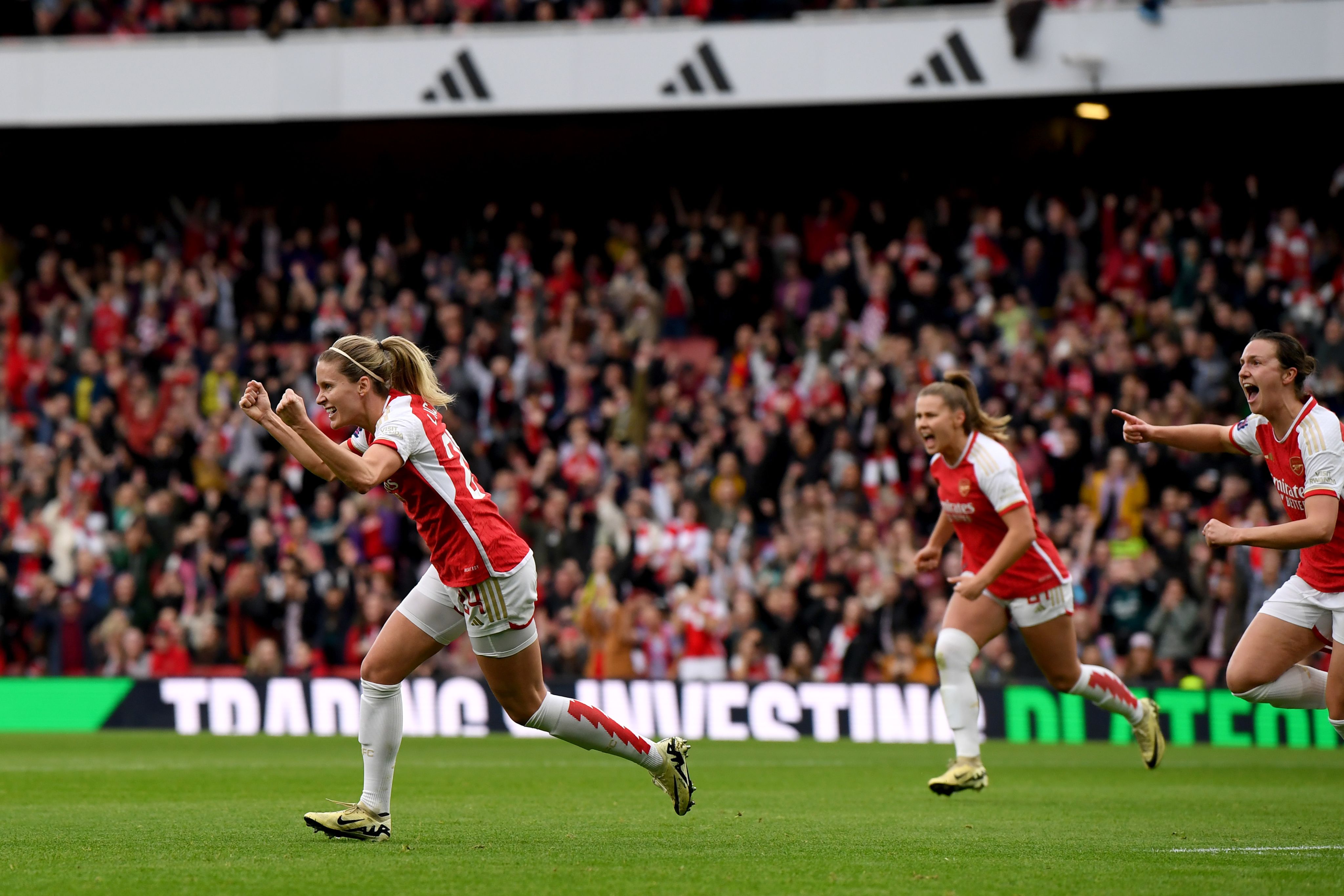
Did you ever play any individual sports growing up?
I actually have a black belt in taekwondo. I did taekwondo, quite competitively. I was nationally ranked for quite some time, and then I eventually decided which way I wanted to go because I knew that my parents were quite overwhelmed with both football and taekwondo as they all got pretty intense all at once. With Canada, when the provincial programme started coming in which then leads you to the national team, with Taekwondo, it was already starting to be at a national level. It was all kind of coming in at once.
What did you like about doing an individual sport compared to a team sport, and vice versa?
I've actually never been asked that because I was so young when I was doing it, but I think for taekwondo, it was a sport that could be super clinical, in terms of analysing my individual performances, and I knew I controlled absolutely every bit of how the outcome would be. Of course, in that way, you just rely on yourself and your coach. But it's funny because this is the reason I actually went into football. I wanted to be in a team environment, and I enjoyed having teammates to rely on.
For me, it was just more enjoyable to be with the girls rather than competing by myself week in, week out. It’s interesting, because in a team setting if you're on it on that day, you're willing to kind of pull up your teammates, and in the reverse, they'll do it for you as well. Whereas, when I was in taekwondo, if I had a bad day, well, you're down. Literally.
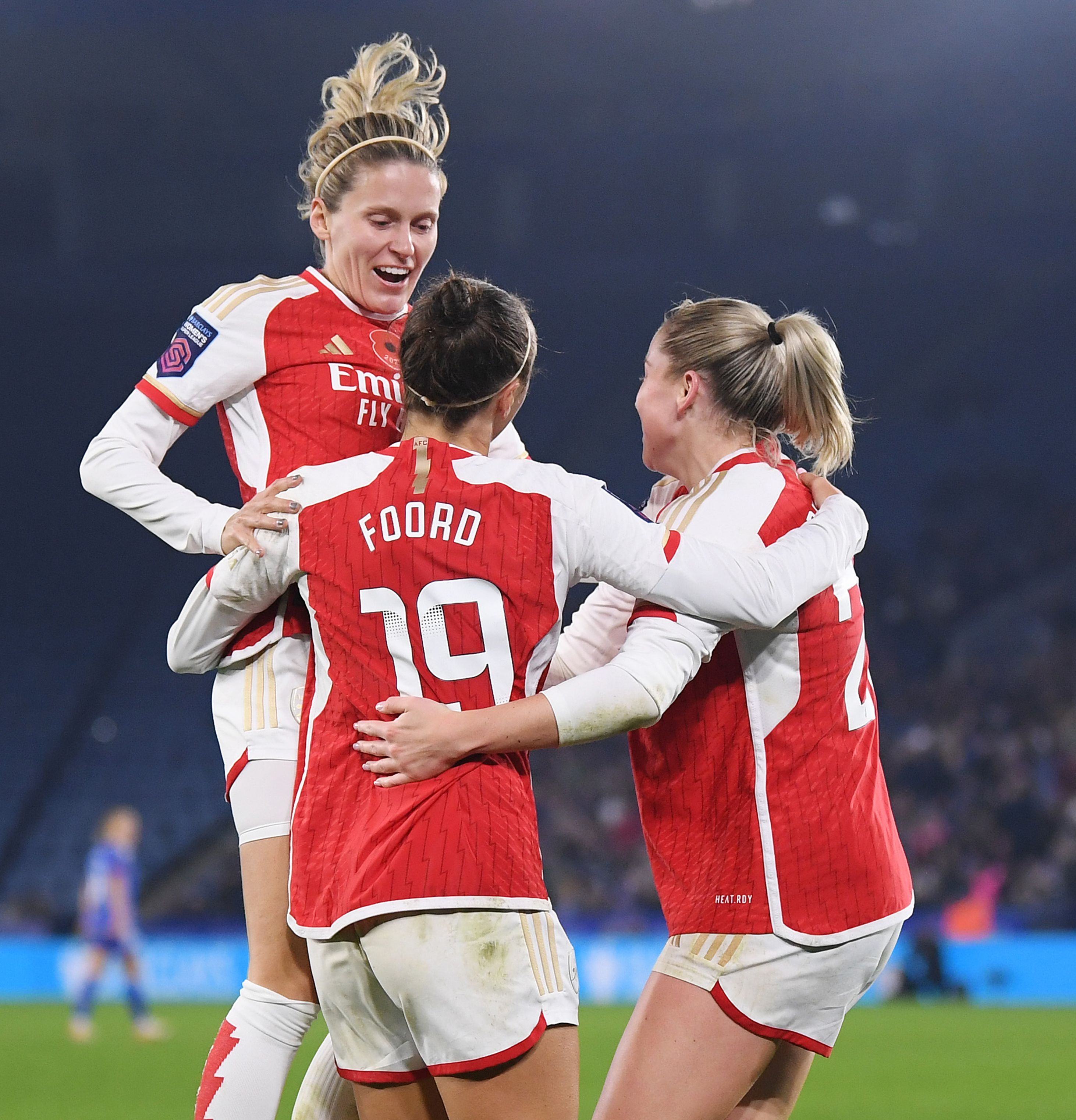
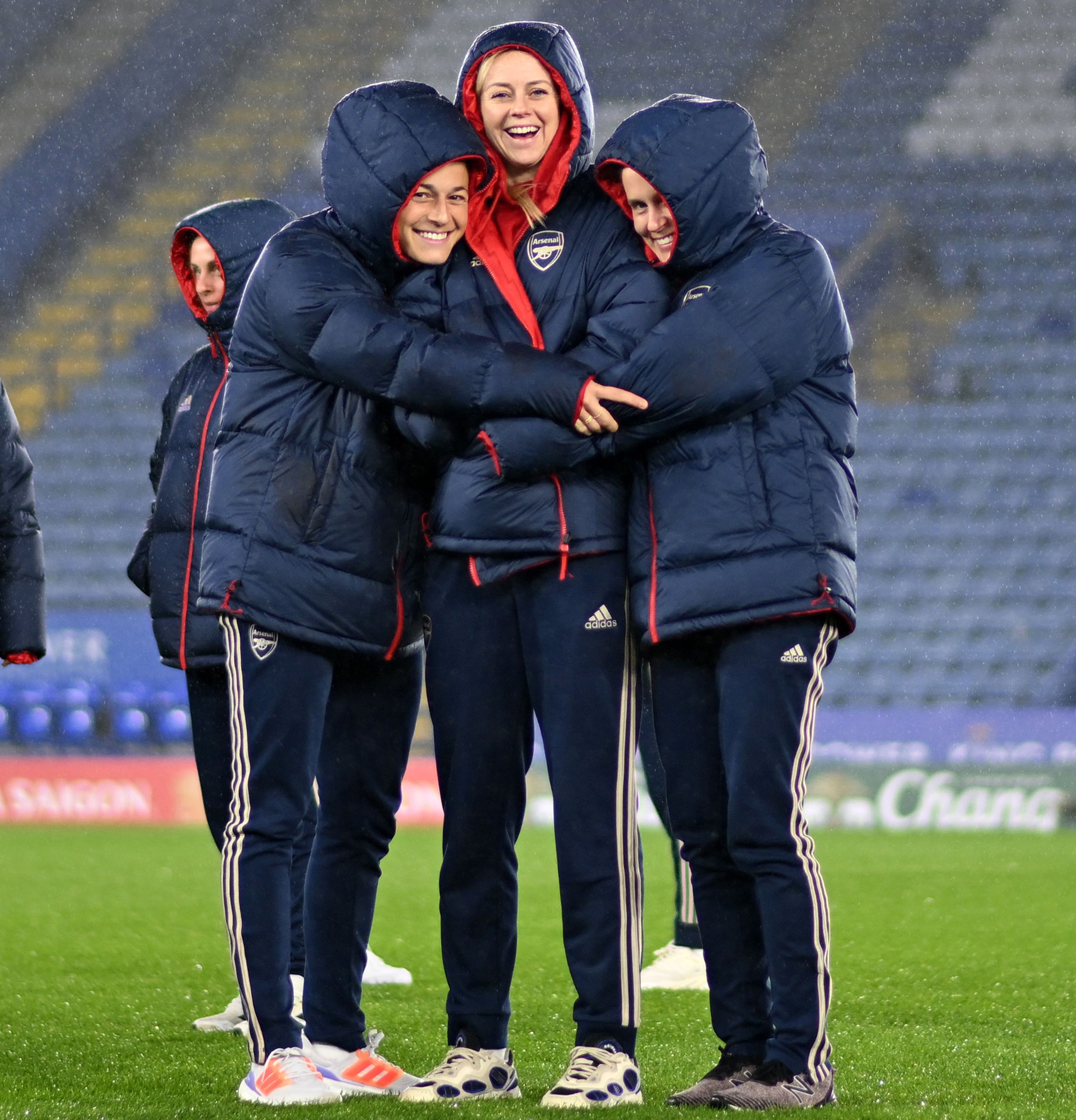
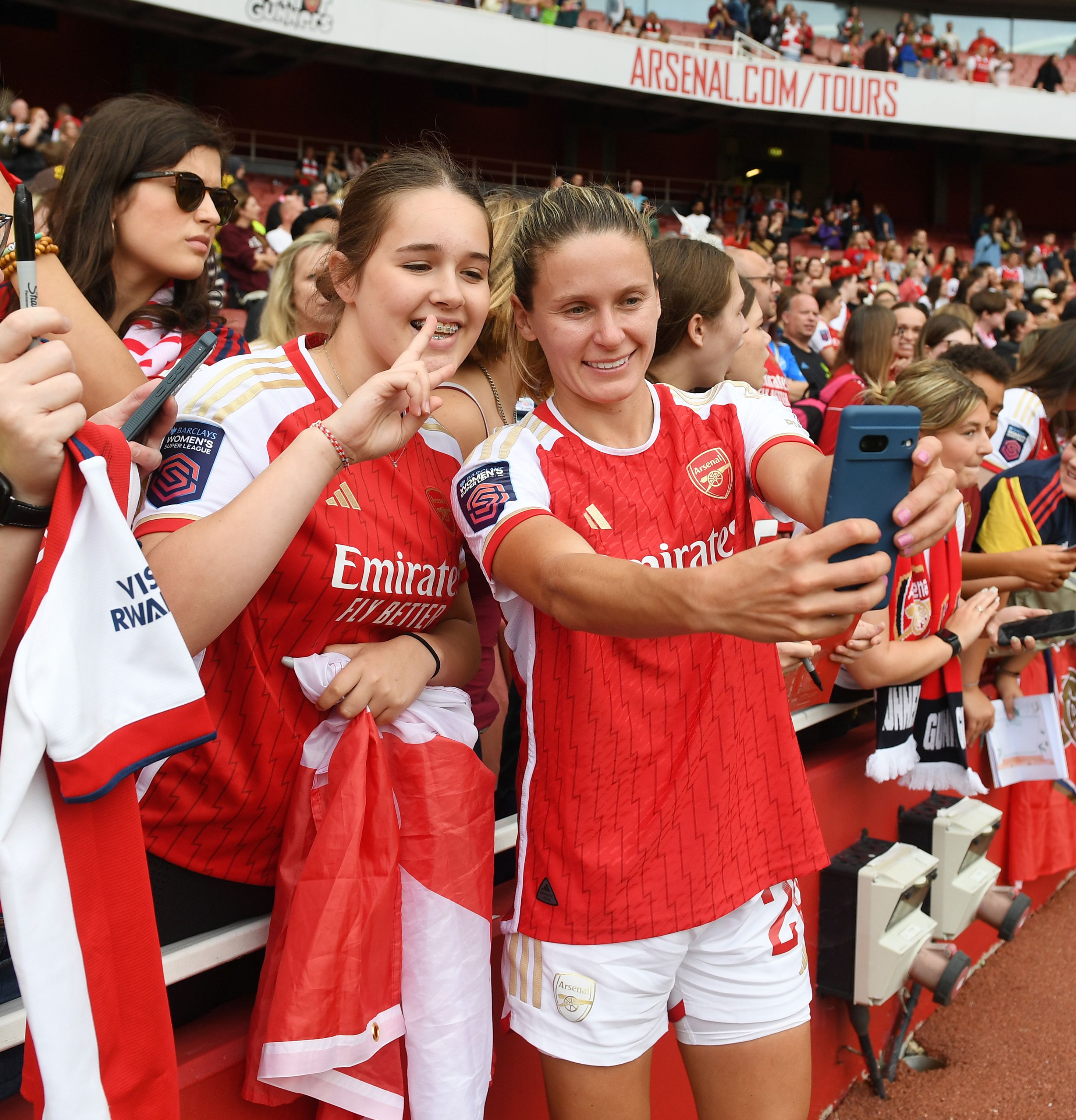
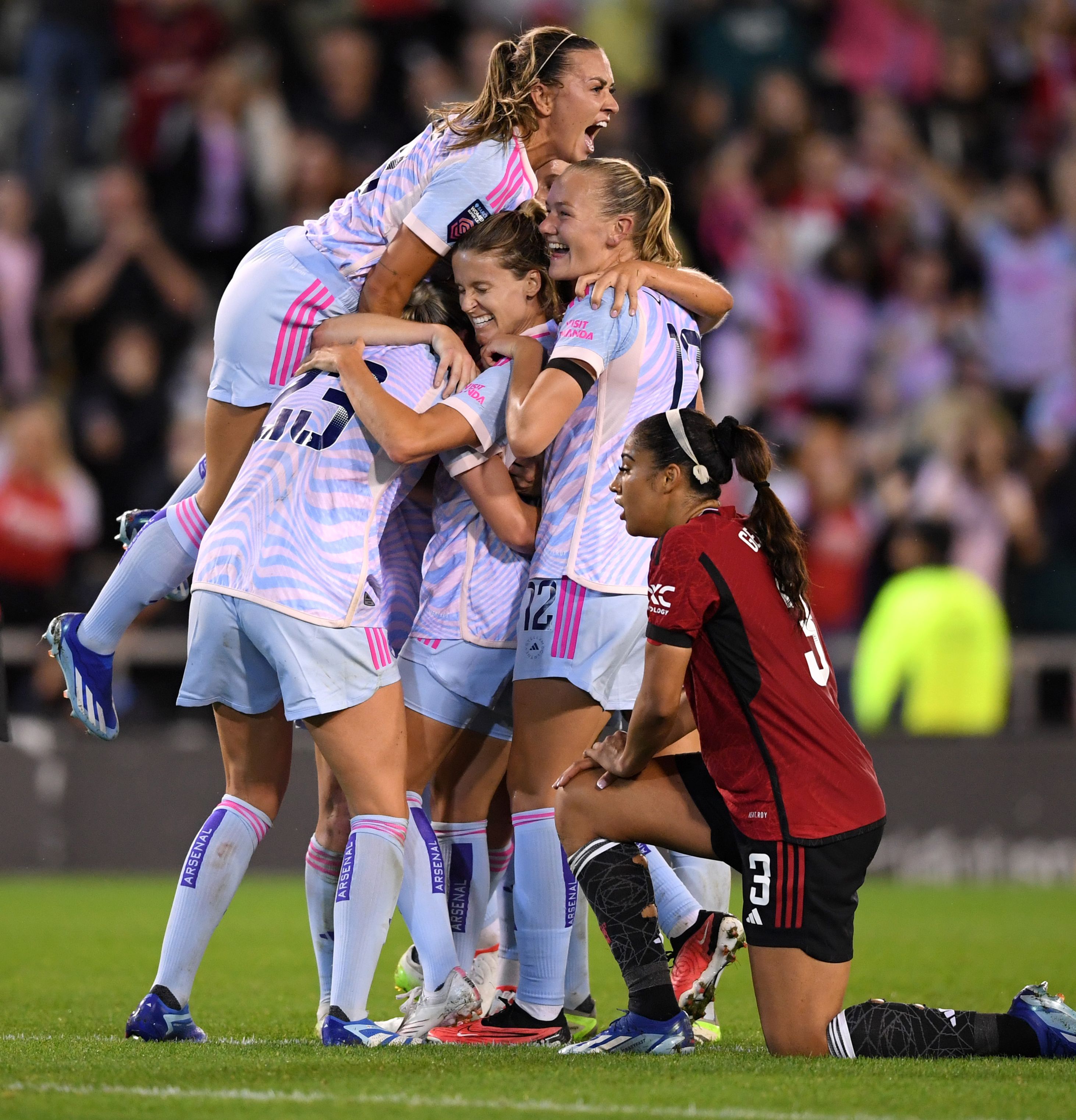
There’s a whole team behind the team at Arsenal: the medical team, coaches etc. What different dynamic do the non-footballers bring to the dressing room?
I think what's nice here is that the staff are fantastic, but they've also gotten to know you on a personal basis. So, they're able to kind of analyse how each of us are feeling in that particular moment and I think most people are able to kind of get the best out of each player because they took the time to know us on a personal level as well. I think that's quite special.
Especially, when you have such a large staff, I think when that happens, it's a little bit trickier, because they have so many individuals. But here at Arsenal, they've done a fantastic job getting to know not only the football player, but also the person behind that.
And finally, what would you say is the best example of togetherness that you felt since you've been at Arsenal?
I think what I’ve come to realise is that the best example of togetherness here at Arsenal is that each and every individual absolutely wants the best for one another. Even if you're competing for a direct position, they're going to try to elevate you and they still want the best out of you.
Whereas in my past experiences, I wouldn't say that was the case. It wasn't on a genuine level if you know what I mean? So, that's definitely how I would explain togetherness at Arsenal. People are absolutely pushing to get the best out of one another, and they genuinely care that you succeed and that the group succeeds because of it.



